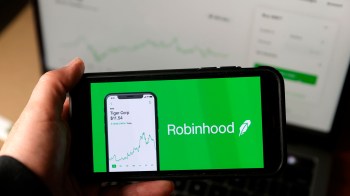Getting caught up in Wall Street’s safety nets
For decades now, when stock markets have melted down for one reason or another, markets and regulators have created rules to keep it from happening again.
“We have a number of protections against fat-finger trades,” says James Angel, associate professor of finance at Georgetown’s McDonough school of business. Fat-finger trades are when someone just presses the wrong button. “This happens all the time — someone puts a decimal point in the wrong place or hits buy instead of sell.”
Brokers — or, more specifically, their computers — catch these sorts of things automatically.
The next level of safeguard is what’s known as a “circuit breaker.”
“If a stock moves too far too fast, it’s their job to say, ‘Hey guys, time out! The price of this stock is about to do something haywire,’” Angel explains.
Different stocks have different bands within which trades are accepted, and outside of which an alert is triggered and causes an automatic pause in trading for that stock for 15 seconds or more.
Entire markets can close as well under certain circumstances.
“The idea behind closing the exchange for a period of time is it allows cooler heads to prevail,” says Ed Clissold, U.S. market strategist at Ned Davis Research Group.
More than 1,300 of these circuit breakers were tripped on Monday.
“It’s debatable just how effective they are,” says Zachary Karabell, head of global strategy at Envestnet. Different types of stocks have different triggers, and stocks like General Electric certainly didn’t look like they were helped much.
“Because these rules have been invoked constantly over the past two days, but it certainly hasn’t prevented some pretty intense market movements,” he says, adding that, “I suppose you could say those movements would have been even more intense, perhaps destructively intense had it not been for these.”
Georgetown’s Angel says the rules may need some tweaking, for example in the bands that certain stocks allow to be traded.
“We’re still studying it,” he says, “but at first glance it seems to have worked.” At some point, volatility is an unavoidable and natural phenomenon of stock markets. There is only so much that can be done to control it.
“It’s kind of like [the rules] are designed to make sure the roads are clearly marked and there aren’t huge potholes,” says Karabell. “They’re not designed to make sure people drive well.”
There’s a lot happening in the world. Through it all, Marketplace is here for you.
You rely on Marketplace to break down the world’s events and tell you how it affects you in a fact-based, approachable way. We rely on your financial support to keep making that possible.
Your donation today powers the independent journalism that you rely on. For just $5/month, you can help sustain Marketplace so we can keep reporting on the things that matter to you.


















